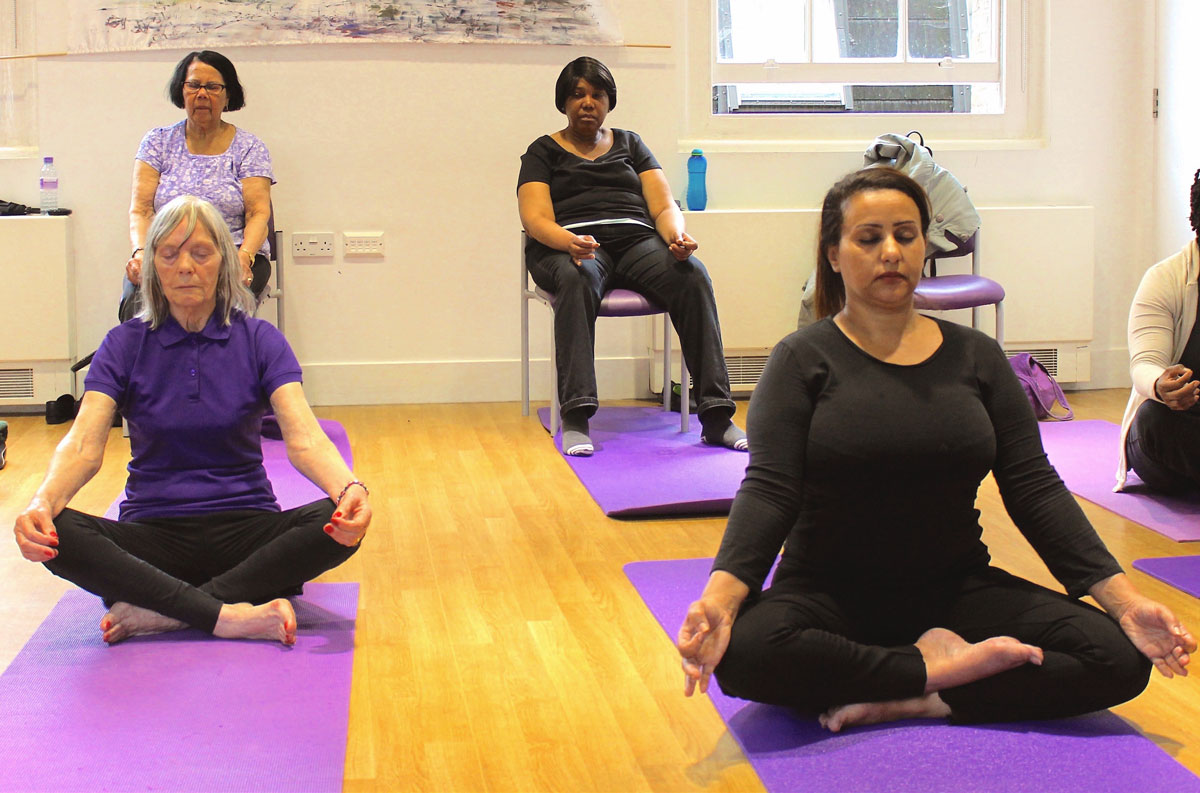HOW KUNDALINI YOGA BENEFITS VULNERABLE PEOPLE
When taught to people with no or minor health conditions, Kundalini Yoga has proven to be very efficient in maintaining above-average well-being and preventing many conditions common in today’s society.
Common conditions include obesity, cardiovascular diseases, stress-related problems, insomnia, diabetes, high blood pressure, depression and anxiety, cognitive impairments etc, some of them not only due to the physical exercising but also due to the complenetary dietary and other lifestyle suggestions.
The communal aspect of yoga also helps people to forge a sense of connection and belonging, especially if they learn in a group, which can be hugely beneficial for those who may otherwise become isolated by their mental health issues.
Read how Kundalini Yoga benefits our various client groups specifically
Our Work
Read about the scientific evidence of the benefits of Kundalini Yoga
Academic Research


